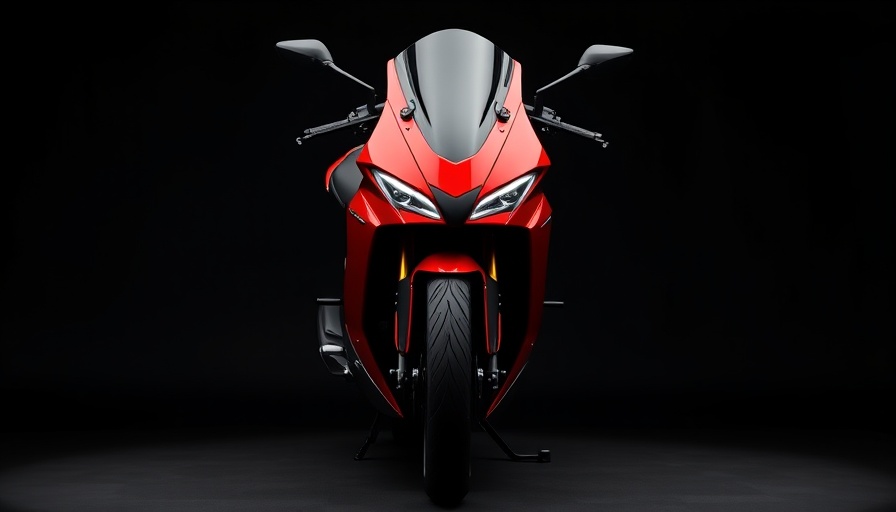
Electric Revolution or Traditional Norm? The X Games Dilemma
The recent decision by the X Games to ban electric motorcycles from their competitions is stirring controversy among fans and participants alike. Competitors will now have to rely solely on petrol bikes, a move that many argue stifles technological innovation in an event rooted in pushing boundaries. Last year's inclusion of electric bikes from Stark Future proved successful; three riders showcased their skills, with two bringing home medals. This abrupt shift raises questions about the X Games' commitment to evolve alongside emerging technology.
Understanding the Ban: Tradition Versus Innovation
X Games officials cited a desire to maintain a "level playing field" as the primary reason for the ban. They argue that the competition formats cater to traditional gas-powered bikes, which are seen as the prevailing standard in elite competitions. However, many critics call this reasoning myopic, asserting that the very essence of the X Games is about embracing innovation and elevating the sport through cutting-edge technology.
Provocative Arguments: Is It Fair to Exclude Electric Bikes?
Critics of the ban, including industry experts and competitors, are voicing their frustrations. It has been claimed that the outcome of the event unfairly favors gas bikes due to biases rather than performance metrics. For many, the introduction of electric motorcycles represented a breath of fresh air, a new era of creativity where riders could perform stunts previously thought impossible. The Stark VARG's combinations of lower weight and instant torque enabled athletes to push the limits beyond traditional standards, fostering excitement for fans.
Historical Context: A Shift in the Norms of Motocross
The history of motocross has always been characterized by rebellion against the status quo. From the introduction of new stunt techniques to adopting superior bike technologies, the sport thrives on transformation. This restriction by the X Games could be viewed as a regression to old paradigms. Notably, last year’s inclusion of electric bikes provided a thrilling glimpse into the future of motocross, reminiscent of the innovations that transformed the scene in the late 1990s. Are we now locking the door on our own evolution?
The Future: What Lies Ahead for Electric Motorcycles?
Looking forward, the ban may delay the inevitable integration of electric motorbikes into mainstream competitions, particularly as the technology continues to improve. Many feel that rather than prohibit electric motorcycles, the X Games ought to create separate categories that embrace both styles and allow for a celebratory competition of innovation. Participants and fans alike are eager to see what the future holds and hope the X Games will adapt rather than resist.
A Call for Inclusivity in Motorsports
As we reflect on this rule change, it’s clear that the push for inclusivity in all forms of competition is paramount. Electric vehicles have become symbols of progress and sustainability in our world. The X Games could become champions of that narrative by marrying tradition with innovation. By engaging in open discussions with riders and manufacturers, the X Games might not just adapt to a changing landscape but lead it.
Conclusion: Action is Necessary for Progress
The choice to ban electric motorcycles might satisfy the vested interests of certain developers but poses a significant threat to the overall progress of the sport. For homeowners and businesses invested in green energy and technological advancements, this move serves as a reminder of the challenges that often accompany innovation. We must advocate for embracing change, for only by doing so can we orchestrate a sustainable future in our sports.
To continue the conversation around the evolution of sports and technology, consider engaging with platforms and communities that advocate for green energy and electric innovations. Explore how you can contribute to moving this narrative forward in your arena.
 Add Row
Add Row  Add
Add 



Write A Comment